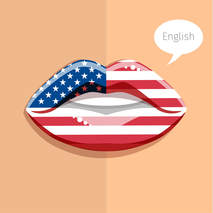Author: Ela Britchkow, Speech-Language Pathologist |
Author
|
Contact Us |
ConnectHave questions? We would love to hear from you.
Translate Site to Improve Your American English PronunciationFull refund provided if not satisfied. Please refer to Terms of Service.
Southampton, Pennsylvania 18966
United States |
We offer one-on-one Skype Sessions!
|
Ask About Company/Group DiscountsAsk About Company/Group Discounts
English is rapidly becoming the world's main language. In almost every country, better education and employment opportunities depend more and more on a person's ability to speak English clearly and be understood. Internationally, the American accent is best understood among other English speakers.
Ela Britchkow© 2017 Speech and Language Services PC

 RSS Feed
RSS Feed
